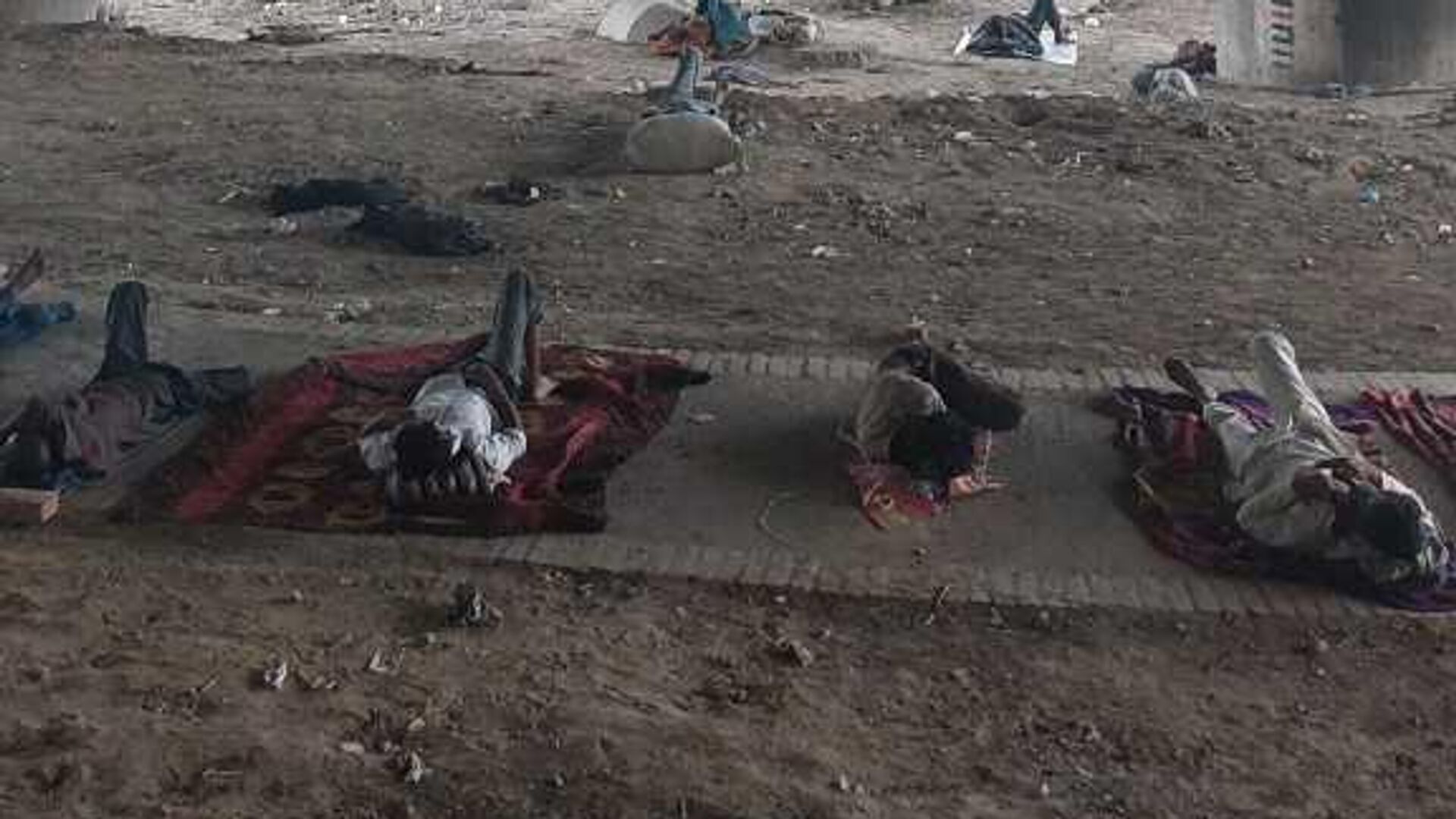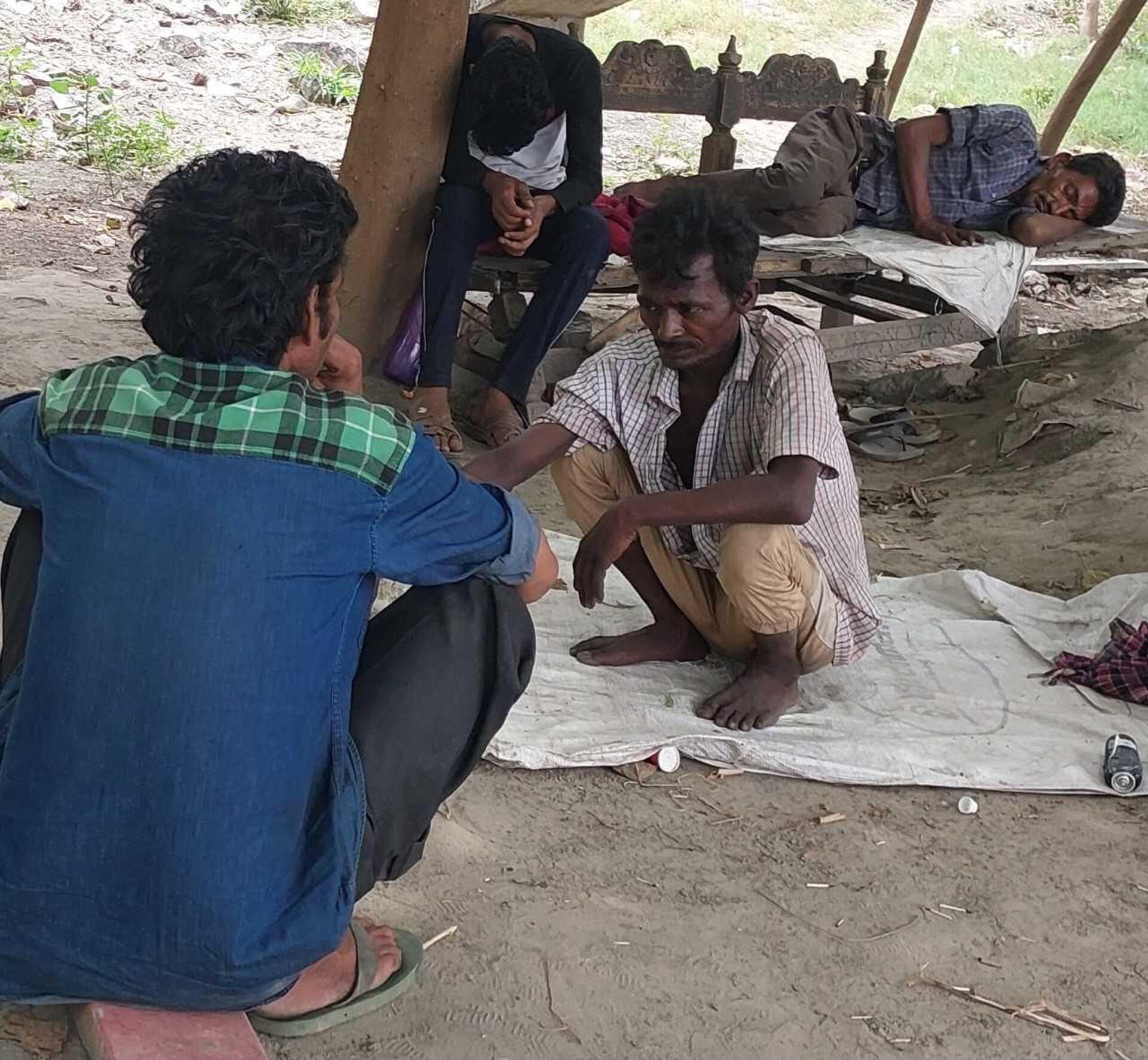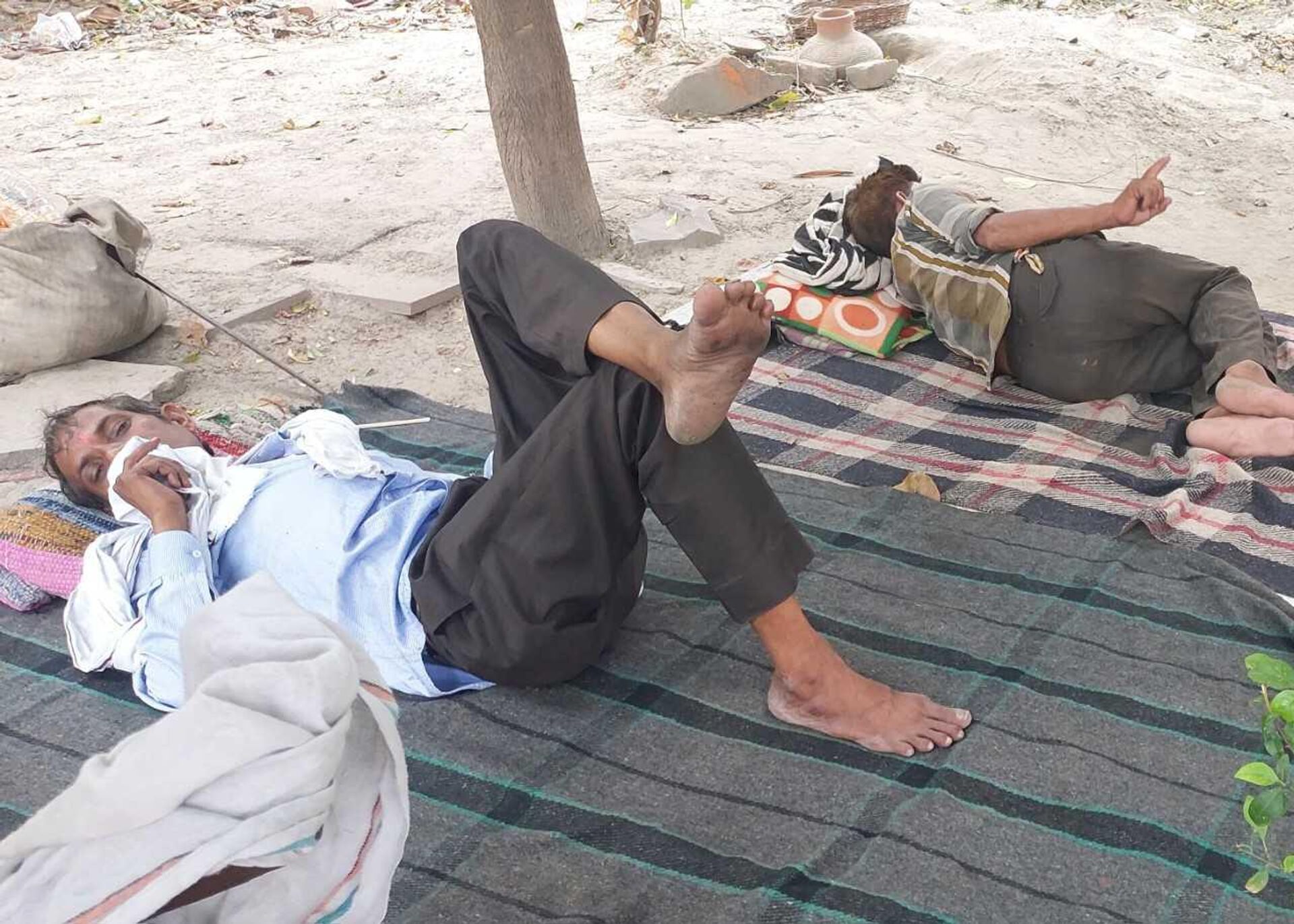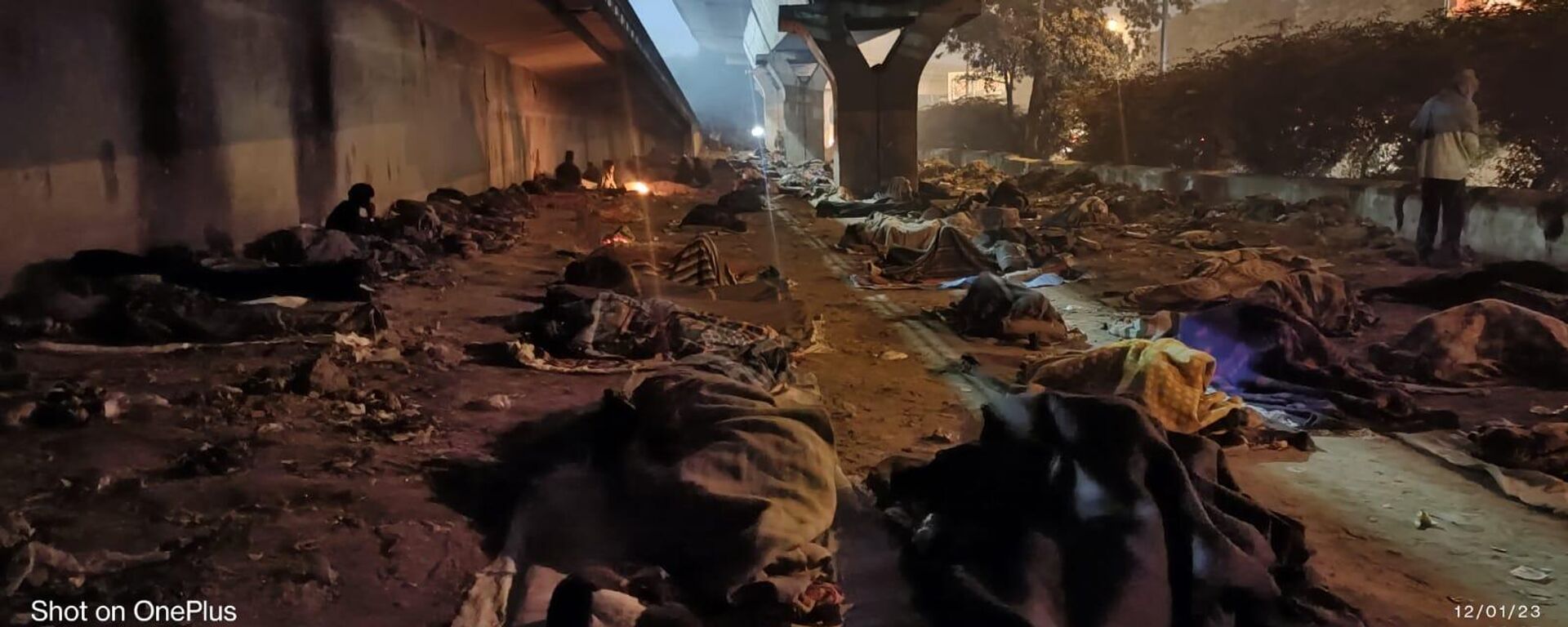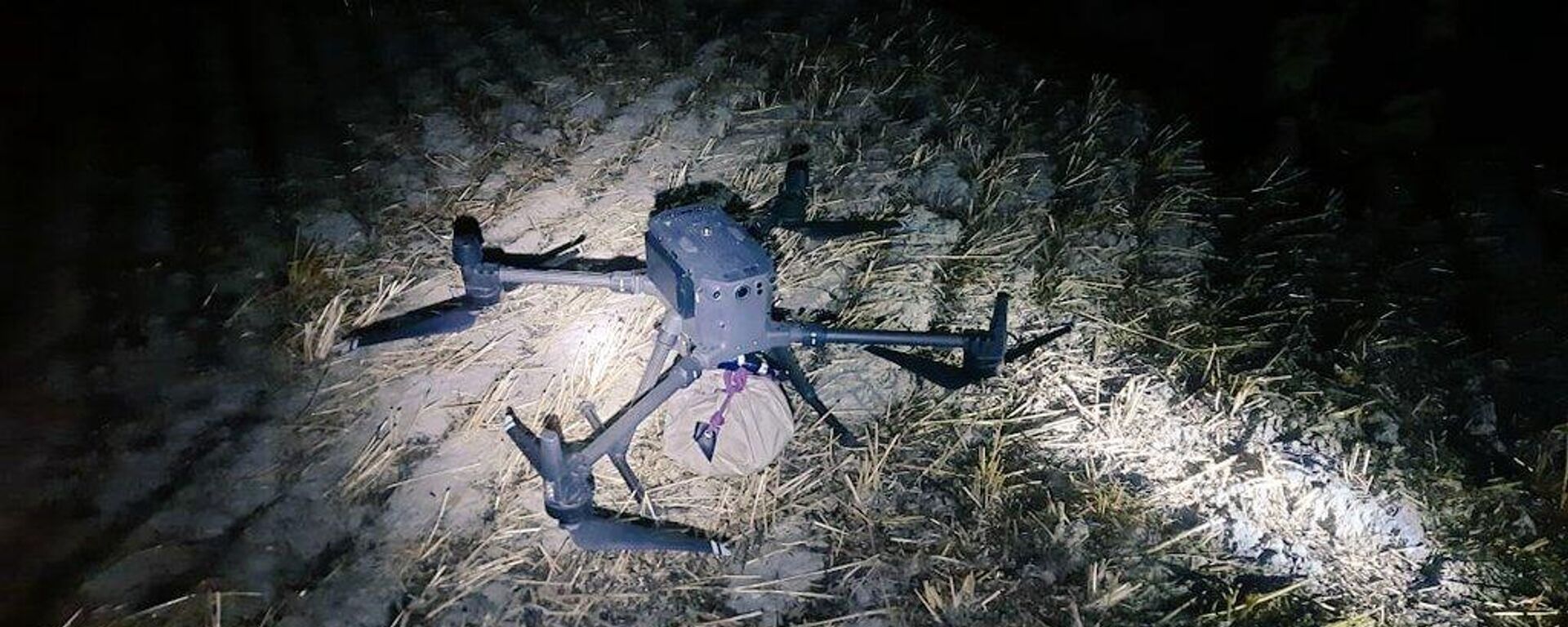https://sputniknews.in/20230626/drug-addiction-a-family-problem-few-indians-wish-to-open-up-about--2685284.html
Drug Addiction: A Family Problem Few Indians Wish to Open Up About
Drug Addiction: A Family Problem Few Indians Wish to Open Up About
Sputnik India
The Indian government, in 2022, stated its ministry only maintains data of the number of people who benefited through National Action Plan for Drug Demand Reduction than any data on drug addiction cases registered in the country.
2023-06-26T19:54+0530
2023-06-26T19:54+0530
2023-06-26T19:54+0530
india
drug smuggling
drug trafficking
delhi
new delhi
government of india
health
aging society
sputnik exclusives
https://cdn1.img.sputniknews.in/img/07e7/06/1a/2691464_0:928:576:1252_1920x0_80_0_0_9cf0ea7ed057de97fe297e5dacf0f4f1.jpg
Reena of Old Delhi has been leading a life in hiding for three years. She keeps changing her address every six months or less. The 31-year-old mother-of-three fears being found by her husband, Kawal Sharma -- a drug addict.Talking to Sputnik, Reena, who asked for her name to be changed, curses the day her parents got tricked into marrying her to Kawal, who worked as a photo album maker.For her daughters, she said, their father was literally a scary beast, and for her a "shameful and painful memory". The routine beatings inside her previous home have traumatized her kids so much that they don't even want to hear his name, she added.Apart from Reena, Sputnik approached many families, but they all refused to open up to avoid social embarrassment.What Drug Addicts Think of Their Addiction?Shiv Shankar Tiwari of India’s Bihar state hails from an upper-middle-class family. Though his brothers migrated to Delhi two decades ago, they disassociated themselves from him. They say their home doesn’t have any place for a Ganja (cannabis) addict. Tiwari now leads a homeless life on River Yamuna’s sandy banks in the same city. He occasionally works at weddings as help and enjoys hashish and cannabis on idle days.Tiwari shared that he also longed to marry a girl. But her father and others left him black and blue upon learning that he loved her. “They view me as a Nashedi (drug-addict) more than a human being.”Bhola from Uttarakhand state was inhaling Ganja from a smoke pipe when Sputnik met him. Asked why he takes it, the youngster curtly replied: “Do you know what I have been through in life? I am not disturbing anyone, why are you bothered about me? I am just happy this way.”Ajit, alias Baba, was 13 when he fled to Delhi from West Bengal state in the 1980s. Finding it too much to live in his parents’ hand-to-mouth situation that couldn’t even afford his education, he ran away to Delhi.But he didn’t take to drugs. Since living amid addicts for decades at Delhi's Qudesia Park, where hundreds of people can be found taking drugs, he observed that they were basically hiding from their loved ones.Drug Addiction – A Rising Social MenaceDr. P.C. Bhatnagar, a public health expert in Delhi, argues that the situation is pretty bad. Drug addiction is starting at a much younger age than it used to be earlier. “If you look at it the (situation) has gone up, numbers of people have gone up, availability of drugs has gone up. And different types of drugs are available nowadays.”Is It Incurable?He explains that it depends upon what type of things are being consumed, the quantity, and duration, but that said, the people who are seriously addicted, won't survive for a very long time.Punjab – a Favourite Route of Drug SmugglingWhile drug addiction is affecting almost every state and territory of India in different proportions, Punjab, which shares its border with Pakistan, often finds a special mention. It’s a favorite route of smugglers working on the Afghanistan route.In Punjab, it's actually not heroin consumption but trade that is said to be taking place on a big scale.To reduce the risk of getting caught, smugglers have started using drones. These are used by both the Pakistani and Indian side to deliver drugs before safely returning to the sender. This is the new modus operandi, say locals.As per Punjabi intellectuals, the trade, however, does not involve just India and Pakistan. It's linked to the international mafia that is actually running this trade. From here, the drug supply goes to western countries.In Punjab, heroin consumption was observed around 10-15 years ago. The demand also rose for some time. “But we need to understand that heroin is an expensive drug, beyond everyone's means,” he explained.Government Endeavor Against Drug AddictionTo handle the drug abuse problem among Indian youth, the Ministry of Social Justice and Empowerment (MSJE) has introduced a drug-free India movement -- Nasha Mukt Bharat Abhiyaan (NMBA) -- in the country's 272 most vulnerable districts since August 2020.It involves laying special emphasis on the participation of women, children, educational institutions, and civil society groups -- directly or indirectly affected by substance abuse. Also, 8,000 Master Volunteers have been trained in the 272 districts.To date, over 119 million people have been reached through various activities.A larger community has been reached through various women groups -- Anganwadi & ASHA (social health activists) workers, auxiliary nurse midwives, and social media is being utilized to spread the message of the movement.Need of the HourThere is a strong need for a community movement against drugs, the veteran health expert suggests.
https://sputniknews.in/20230118/with-torn-blankets--bedbugs-delhi-homeless-prefer-sleeping-on-streets-528803.html
https://sputniknews.in/20230418/why-yamuna-lovers-seek-drastic-steps-to-save-this-dying-river-1561136.html
https://sputniknews.in/20230612/another-pakistani-drone-shot-down-by-bsf-personnel-in-indian-punjab-2437361.html
india
delhi
new delhi
Sputnik India
feedback.hindi@sputniknews.com
+74956456601
MIA „Rossiya Segodnya“
2023
Sandeep Datta
https://cdn1.img.sputniknews.in/img/07e7/04/07/1468069_0:258:1800:2058_100x100_80_0_0_3909870b82375b0693e9fd27915facc3.jpg
Sandeep Datta
https://cdn1.img.sputniknews.in/img/07e7/04/07/1468069_0:258:1800:2058_100x100_80_0_0_3909870b82375b0693e9fd27915facc3.jpg
News
en_IN
Sputnik India
feedback.hindi@sputniknews.com
+74956456601
MIA „Rossiya Segodnya“
Sputnik India
feedback.hindi@sputniknews.com
+74956456601
MIA „Rossiya Segodnya“
Sandeep Datta
https://cdn1.img.sputniknews.in/img/07e7/04/07/1468069_0:258:1800:2058_100x100_80_0_0_3909870b82375b0693e9fd27915facc3.jpg
drug addiction in india , illegal drugs used in india, drug addicts need punishment debate, how to help drug addicts, government survey of extent of drug abuse in india, government rehabilitation center, nasha mukti kendra, government nasha mukti kendra in up, government nasha mukti kendra in delhi, drug addiction problems and solutions, what are the effects of drug abuse on the community, harmful effects of drugs, how to stop drug addiction, how to prevent drug abuse, solution to drug abuse, international day against drug abuse, anti drug day in india
drug addiction in india , illegal drugs used in india, drug addicts need punishment debate, how to help drug addicts, government survey of extent of drug abuse in india, government rehabilitation center, nasha mukti kendra, government nasha mukti kendra in up, government nasha mukti kendra in delhi, drug addiction problems and solutions, what are the effects of drug abuse on the community, harmful effects of drugs, how to stop drug addiction, how to prevent drug abuse, solution to drug abuse, international day against drug abuse, anti drug day in india
Drug Addiction: A Family Problem Few Indians Wish to Open Up About
The Indian government stated in 2022 that its ministry only keeps data for the number of people who have benefited through the National Action Plan for Drug Demand Reduction (NAPDDR) and not for all drug addiction cases registered in the country.
Reena of Old Delhi has been leading a life in hiding for three years. She keeps changing her address every six months or less. The 31-year-old mother-of-three fears being found by her husband, Kawal Sharma -- a drug addict.
Talking to Sputnik, Reena, who asked for her name to be changed, curses the day her parents got tricked into marrying her to Kawal, who worked as a photo album maker.
"A few months after our wedding, I found him taking Charas (hashish). I was shocked and immediately returned to my mother's place. But I had to come back to adjust fearing societal slander, I stupidly hoped he might improve. But it never happened in spite of my return and re-returns."
Despite becoming the father of three daughters, Kawal, now a jobless man, steadily got lost in drugs alongside his 'friends'. "At times, neighbors gave food to my daughters to cheer them up. They knew their father didn't even remember if they had food or not."
"I still have his nightmares. He can find me and thrash me again to snatch my earnings for drugs," said Reena, who now works as a ‘Dai’ (midwife) at a hospital. She wishes to save enough to bring up her girls and marry them off, the youngest of them is barely three.
For her daughters, she said, their father was literally a scary beast, and for her a "shameful and painful memory". The routine beatings inside her previous home have traumatized her kids so much that they don't even want to hear his name, she added.
Apart from Reena, Sputnik approached many families, but they all refused to open up to avoid social embarrassment.
What Drug Addicts Think of Their Addiction?
Shiv Shankar Tiwari of India’s Bihar state hails from an upper-middle-class family. Though his brothers
migrated to Delhi two decades ago, they disassociated themselves from him. They say their home doesn’t have any place for a
Ganja (cannabis) addict. Tiwari now leads a homeless life on River Yamuna’s sandy banks in the same city. He occasionally works at weddings as help and enjoys hashish and cannabis on idle days.
Asked how it started, he reminisced: "It started from drinking liquor with some spoiled friends while bunking school. The guys later got me into drugs and crimes for fun. When my family learned about it, I had to leave home. It had turned too much to bear with sarcastic taunts of my brother's wife."
Tiwari shared that he also longed to marry a girl. But her father and others left him black and blue upon learning that he loved her. “They view me as a Nashedi (drug-addict) more than a human being.”
Bhola from Uttarakhand state was inhaling Ganja from a smoke pipe when Sputnik met him. Asked why he takes it, the youngster curtly replied: “Do you know what I have been through in life? I am not disturbing anyone, why are you bothered about me? I am just happy this way.”
Ajit, alias Baba, was 13 when he fled to Delhi from West Bengal state in the 1980s. Finding it too much to live in his parents’ hand-to-mouth situation that couldn’t even afford his education, he ran away to Delhi.
But he didn’t take to drugs. Since living amid addicts for decades at Delhi's Qudesia Park, where hundreds of people can be found taking drugs, he observed that they were basically hiding from their loved ones.
“They find it an easy refuge to live in isolation and take drugs their way. Sometimes they violently attack each other at night, as they are under drugs’ spells.”
“It’s to forget all hurtful personal memories or petty crimes, they take to various addictions.” He says: "The government agencies at times take them to rehabilitation centers but they either flee or when they are freed, they return to their same social environment of addicts."
Drug Addiction – A Rising Social Menace
Dr. P.C. Bhatnagar, a public health expert in Delhi, argues that the situation is pretty bad. Drug addiction is starting at a much younger age than it used to be earlier. “If you look at it the (situation) has gone up, numbers of people have gone up, availability of drugs has gone up. And different types of drugs are available nowadays.”
He explains that it depends upon what type of things are being consumed, the quantity, and duration, but that said, the people who are seriously addicted, won't survive for a very long time.
“They may have to go for counseling but...at a subsequent point of time, mental issues, mental challenges will be there.”
Punjab – a Favourite Route of Drug Smuggling
While drug addiction is affecting almost every state and territory of India in different proportions, Punjab, which shares its border with Pakistan, often finds a special mention. It’s a favorite route of smugglers working on the Afghanistan route.
In Punjab, it's actually not heroin consumption but trade that is said to be taking place on a big scale.
To reduce the risk of getting caught, smugglers have started using drones. These are used by both the Pakistani and Indian side to deliver drugs before safely returning to the sender. This is the new modus operandi, say locals.
As per Punjabi intellectuals, the trade, however, does not involve just India and Pakistan. It's linked to the international mafia that is actually running this trade. From here, the drug supply goes to western countries.
Noted journalist Ravinder Singh Robin opines about local consumption, saying: “Most of the drug addicts in Punjab consume synthetic drugs. However, this border state erroneously earned a bad name for heroin consumption.”
In Punjab, heroin consumption was observed around 10-15 years ago. The demand also rose for some time. “But we need to understand that heroin is an expensive drug, beyond everyone's means,” he explained.
Government Endeavor Against Drug Addiction
To handle the drug abuse problem among Indian youth, the Ministry of Social Justice and Empowerment (MSJE) has introduced a drug-free India movement -- Nasha Mukt Bharat Abhiyaan (NMBA) -- in the country's 272 most vulnerable districts since August 2020.
It involves laying special emphasis on the participation of women, children, educational institutions, and civil society groups -- directly or indirectly affected by substance abuse. Also, 8,000 Master Volunteers have been trained in the 272 districts.
To date, over 119 million people have been reached through various activities.
A larger community has been reached through various women groups -- Anganwadi & ASHA (social health activists) workers, auxiliary nurse midwives, and social media is being utilized to spread the message of the movement.
As per Dr. Bhatnagar, “We are hardly making an effort to change the environment - the societal norm, the family situation, broken families, parents having no time for kids, and then habit of showing off, peer pressure.”
There is a strong need for a community movement against drugs, the veteran health expert suggests.
